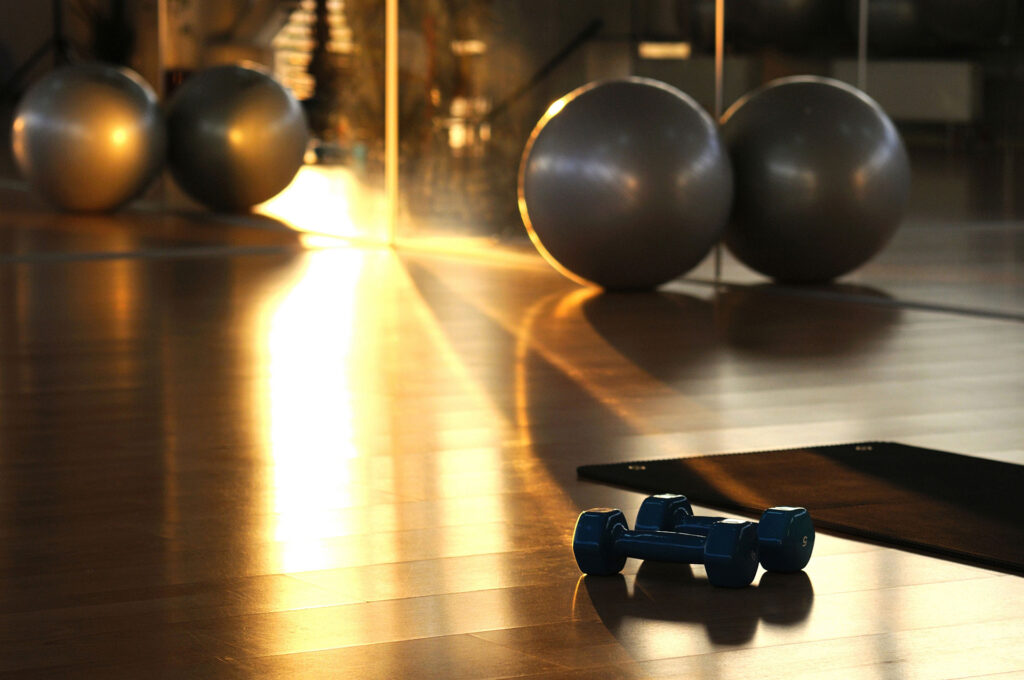Regular exercise can help maintain physical health and prevent the negative effects of a sedentary lifestyle. During Ramadan, when Muslims fast from dawn until dusk, it can be easy to become less active, so incorporating exercise into the daily routine can help keep the body healthy. While fasting during Ramadan can lead to a decrease in energy levels, regular exercise can help to boost energy and improve overall fitness. Exercise can also help to improve sleep quality, which is important during Ramadan when sleep patterns may be disrupted. During iftar, the meal that breaks the fast, many people have a tendency to overeat, which can result in weight gain. Calories can be burned off and a healthy weight can be maintained with regular activity. By lowering stress and anxiety levels, exercise has also been demonstrated to have a favorable impact on mental health. This can be particularly beneficial during Ramadan, when fasting and other religious practices may cause additional stress. Incorporating regular exercise into a Ramadan routine can have several physical and mental health benefits, and can help to support overall well-being during this important time for Muslims. However, before beginning any new workout regimen, especially during Ramadan when food and water intake is restricted, it is crucial to speak with a healthcare provider.
Exercise that is intense during a fast can result in decreased muscle mass and strength. But it’s best to stick to medium-intensity exercise this month. In addition to going to the gym, one can go for a stroll, ride a bike, or even do a little light running. After iftar would be the best time to exercise.
Here are some exercises that can help you stay active and healthy during Ramadan:

- Walking or jogging: These low-impact exercises are great for maintaining cardiovascular health and can be done at any time of the day. Try to do them during non-fasting hours to avoid dehydration. Fasting during Ramadan can cause a reduction in physical activity, which can lead to muscle loss and decreased fitness levels. Walking or jogging can help to keep your body active and maintain muscle mass. It can help to reduce stress levels, which can be especially important during the month of Ramadan when many people experience changes to their daily routines.
- Yoga: This gentle form of exercise can help you stay relaxed, reduce stress, and increase flexibility. It’s also a great way to incorporate mindfulness and spiritual reflection into your fitness routine. It involves a combination of physical postures, breathing techniques, and meditation, and has been shown to have many health benefits. Yoga postures (asanas) are designed to improve flexibility and strength, which can be especially important during Ramadan when you may be more sedentary than usual. Yoga can help you stay mindful of your spiritual goals during Ramadan and help you to be more focused and present in your prayers and other spiritual practices.
- Bodyweight exercises: Push-ups, squats, and lunges are all bodyweight workouts that can help you increase your strength and level of fitness. You can do these exercises at home or at a gym during non-fasting hours. These exercises require no equipment, making them an accessible and convenient way to stay fit during Ramadan. You can perform bodyweight exercises anywhere, whether at home, in a park, or even in a mosque
- Swimming: Swimming can be a fantastic full-body workout if you have access to a pool without placing too much stress on your joints. Try to swim during non-fasting hours to avoid dehydration. Swimming maintains muscle mass, increases cardiovascular fitness, and improves overall physical health. Fasting can sometimes make people feel sluggish and tired, but swimming can help increase energy levels and improve mood
- Jump rope: Jumping rope is a great cardiovascular exercise that can help you maintain your fitness level during Ramadan. It can also be a good way to get your heart rate up and burn calories, which can be particularly helpful if you are looking to lose weight or maintain a healthy weight. This is a very convenient exercise that can be done almost anywhere. You don’t need any special equipment or a lot of space to do it, and it is less time-consuming.
- High-intensity interval training: Short bursts of intensive activity are interspersed with rest intervals during these workouts. They can speed up your metabolism, help you lose weight, and enhance cardiovascular health. But because they can be so demanding, be sure to talk to a doctor before beginning a HIIT program during Ramadan.
During Ramadan, keep in mind to pay attention to your body and modify your fitness regimen as necessary. In order to avoid dehydration and tiredness, it’s crucial to drink enough of water and refrain from exercising during the fasting period.







